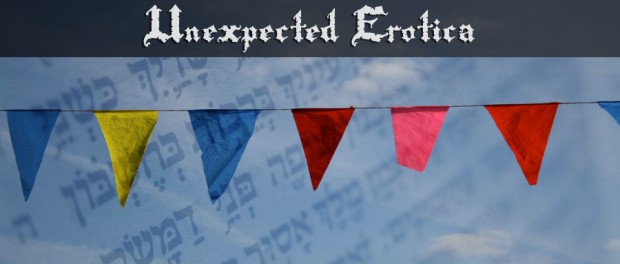His Banner over Me – Song of Songs 2:4

Song of Songs 2:4
- KJV: He brought me to the banqueting house, / And his banner over me was love.
- NIV: Let him lead me to the banquet hall, / and let his banner over me be love.
- NASB: He has brought me to his banquet hall, / And his banner over me is love.
Yes, I like the modern song that has these lyrics, too. And insofar as this ancient Song provides a strong metaphor of Christ and His bride, I’m okay with that interpretation of this verse. Yet even a casual reader could choke on making sense out of it, given the context.
Does our hero take his love out to dinner and plant a flag for all to see, claiming her lands for king and country? I suppose I can appreciate public claims and wanting to show off my wife as much as (or more than) the next guy, but is that really all this is?
Even the translators who do buy into the above translation can’t seem to agree on any real interpretation within the context
Pope, Carr, and others think not. In fact, even the translators who do buy into the above translation can’t seem to agree on any real interpretation within the context. To many it seems to be some obscure statement with the original meaning lost to the annals of ancient Palestine. Yet some offer cogent arguments for a very clear and very suggestive translation and interpretation. This comes from reconsidering three pieces of this verse.
The first reconsideration comes from the phrase translated as “banquet hall”. This Hebrew phrase includes bayit (house) and yayin (wine), meaning something like “house of wine”. It’s reasonable to see why someone would read that as a banquet hall, but it could be other things as well. Carr writes, “Idiomatically, this ‘house of wine’ could be the place where wine is grown (i.e. a vineyard), manufactured, stored, or consumed.”
Carr also points out that while distinct phrases found in Esther reveal how ancient Hebrews might have referred to a drinking place (such as a banquet hall), this particular pairing only occurs here in the Old Testament, perhaps indicating something different. He suggests, rather, that this refers to the vineyard itself, which fits the natural settings that constantly play host to the lovers’ escapades in the Song. Effectively, he’s taking her to a vineyard for their next romantic liaison.
This certainly fits the frequent similar settings, but now the next colon makes even less sense. What does a flag have to do with a vineyard?
A reconsideration of the Hebrew degel translated as “banner” provides our next clue. The only other time this word appears in noun form with a possessive pronoun (“his” in this case) is in the book of Numbers where it’s used several times to reflect some means of identification of different families within the sprawling Hebrew camp. A reasonable assumption of “standard” or “banner” helps, as it explains how such groups would have been distinguished. This family had red banners, that one had blue, and so on.
Yet this is uncertain, and it doesn’t cleanly explain how this same Hebrew root could be used as a verb elsewhere.
Carr, Pope, and R. Gordis suggest we look to the Akkadian cognate dagâlu to explain a verb-form dgl (ancient Hebrews often wrote words without vowels, so the root word dgl could be degel [a noun] in some places and dgl could be something different [a verb] in others, leaving translators to use context to determine which is which). This_ dagâlu_ means “to look on with astonishment or admiration”. One would look on this tribe or that tribe thanks to a banner or standard, which acts as a facilitator of this looking on.
Pope then points out the Akkadian root diglu (which still fits the Hebrew dgl) also means to wish. So the lovers go to the vineyard as they’re wont to do, and he has a clear desire in his eyes when he looks at her.
It’s not hard to do the math from here.
The final reconsideration is ‘ahabâ, a Hebrew word that is translated as “love” but frequently means love’s ultimate expression — sex — particularly here in the Song. Like a perfectly-fitted puzzle piece, this translation choice fits smoothly into place. As Dr. Carr succinctly suggests, “this colon correctly reads, ‘and his wish regarding me was love-making’ or more simply ‘his intentions were to make love’.”
With this interpretation, the following verses make more sense, too. We see him lying her down and her referencing sexual symbols like raisin cakes. We see him holding her head with one hand and caressing her with the other. And we see her desperate warning about keeping love’s proper pace.
That lusty look in his eye must have really been something.
Originally posted 2016-06-10 08:00:18.


Leave a Reply